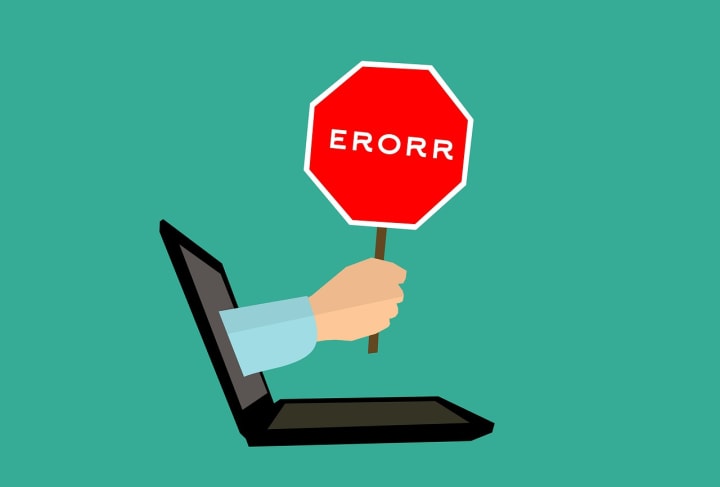How Net Neutrality Affects Small Business Owners
Want to hate Ajit Pai even more? Take a look at the ways that net neutrality affects small business owners.

One of the most unpopular pieces of legislation to have hit the US government was the repeal of net neutrality rules. The legislation, which was backed by FCC chair Ajit Pai along with the Republican party, basically repealed protections that keep internet traffic neutral.
Without net neutrality in place, ISPs can throttle traffic they deem undesirable. It also could be used to force people to buy more expensive internet packages in order to access prime content. This already sounds terrible, because it is.
It's rage-inducing enough, simply because it's a blatant power grab from lobbying groups fed by corporate interests. However, when you hear how net neutrality affects small business owners, you'll feel your blood boiling.
Small businesses that use wi-fi as a way to attract customers might lose that right.
Internet speed throttling should make most people a bit more worried than it does, particularly when it comes to commerce. One of the ways net neutrality affects small business owners is that the law protected owners against having their net throttled.
No one will want to go to a place offering free wi-fi if the wi-fi in question is regularly throttled. As such, internet cafes in major metro areas might suffer—as would coffeehouses and other shops regularly used for business chats.
It could also make operating costs more expensive.
The most obvious way that net neutrality affects small business owners is the fact that it would act as a price protector. The prices of internet "fast lanes" could easily drive up the price of operation for businesses because it gives ISPs more ways to drive up internet access costs.
If ISPs start to charge per bit of data, it's easy to see how many digital advertising companies, video production groups, or similar startups would end up getting nickel-and-dimed to death.
It could also mean unfair competition.
Net neutrality affects small business owners by making it possible to get on a somewhat-even playing field with the bigger conglomerates. Without net neutrality, ISPs can hold the right to speed up websites that are partnered with them.
This, in turn, could mean that small businesses won't be able to deliver the similarly fast-loading times of a major corporation site like YouTube. With worse loading times, many people will just refuse to use small businesses' websites at all.
It's also worth noting that a lot of e-commerce sites are just one-person businesses that could easily get pushed out by a bad ISP.
With the way that net neutrality affects small business owners, the repeal that Pai spearheaded basically puts a lot of companies in jeopardy. The unfair advantages that large companies have means that many micro-businesses may end up having to pay fees they can't afford, just so that they can make ends meet.
Most internet service providers are monopolies in large portions of the United States—and this means business owners are stuck being price gouged.
When you can't really switch providers, you end up stuck with whatever terms the ISP in question has. Net neutrality affects small business owners and individuals alike when it comes to protecting consumers from monopoly abuse.
No net neutrality laws means that you could end up being stuck with internet that's terrible without any kind of recourse. By repealing the laws, major companies have less competition and less reason to try to do right by their consumers.
After all, it's not like most of us can switch providers. The only recourse we could rely on were laws.
If you tend to use certain programs, they may start to "malfunction."

Prior to the net neutrality rules, there were cases in which phone companies would sabotage apps to try to dissuade customers from using them, hoping they'd get clients to switch to the provider's software of choice.
The most famous example was when Apple was caught making Skype lag. Imagine ISPs being able to do that for your company's software, and you'll understand how net neutrality affects small business owners who make software that competes against major megacorps.
Net neutrality's removal also means that ISPs could also choose to price-gouge app makers.
Imagine creating an app to try to make some money, then finding out that you have to pay ISPs to ensure that they won't throttle the data that's being sent over. This is already happening with major sites like Hulu and Netflix—and that should scare you.
As we've said before, ISPs have already sabotaged apps they didn't like because they deemed it to be a threat to their potential business. Who's to say that they won't impose fees on apps, just to ensure they don't "get buggy" when used by customers?
Some ISPs abroad have already floated the idea around. It could very well happen here, and that could seriously stifle commerce.
Net neutrality also makes it harder to create new ISPs.
Because the FCC's ruling favors big business, indie ISPs will face more hurdles than ever before. This will make it harder than ever to get good internet service, or even nurture brand new ISPs.
The prohibitively high cost of even making your own ISP means that "small business" in this sector still remains pretty massive. Net neutrality affects small business owners who want to create their own ISPs pretty hugely. It basically makes indie ISPs impossible.
Another way net neutrality affects small business owners is the price of advertising.
Internet marketing and advertising is one of the most visible ways that net neutrality affects small business owners. Small business that want to advertise on specific sites will often end up footing the bill for all the fees ISPs will impose on them.
Since the advertisers need to make end's meet and cover the cost of ISP fees, the price of advertising will likely increase as well. Companies that won't be able to deal with the change in advertising prices will likely get hurt—and pretty badly, too.
Depending on how far ISPs go, they may even redirect traffic to a favored site.
Net neutrality treats all traffic as equal and basically enforces internet service providers to treat sites equally. It leveled the playing field between major companies and newbies.
With that repealed, ISPs could be allowed to redirect traffic from the site you want to the site they want you to use. This could annihilate small businesses that want to be the next Google—or even the next Etsy.
Basically, net neutrality affects small business owners' ability to keep their business alive.
The FCC's repeal of this set of laws dealt a massive blow to each and every small business owner in the United States. By choosing to favor big business instead of Main Street, the FCC has shown their true colors. The end of net neutrality will affect the internet in ways that you never saw coming.
Thankfully, we can still protest and fight back against these unfair laws—and if you get involved, you can be the help that small business owners need to stay alive.
About the Creator
Rowan Marley
Rowan Marley is a 20-year-old sports enthusiast who hails from Brooklyn. When he's not hitting up a local Zumba class, he's drinking organic smoothies. That's just how he rolls.






Comments
There are no comments for this story
Be the first to respond and start the conversation.